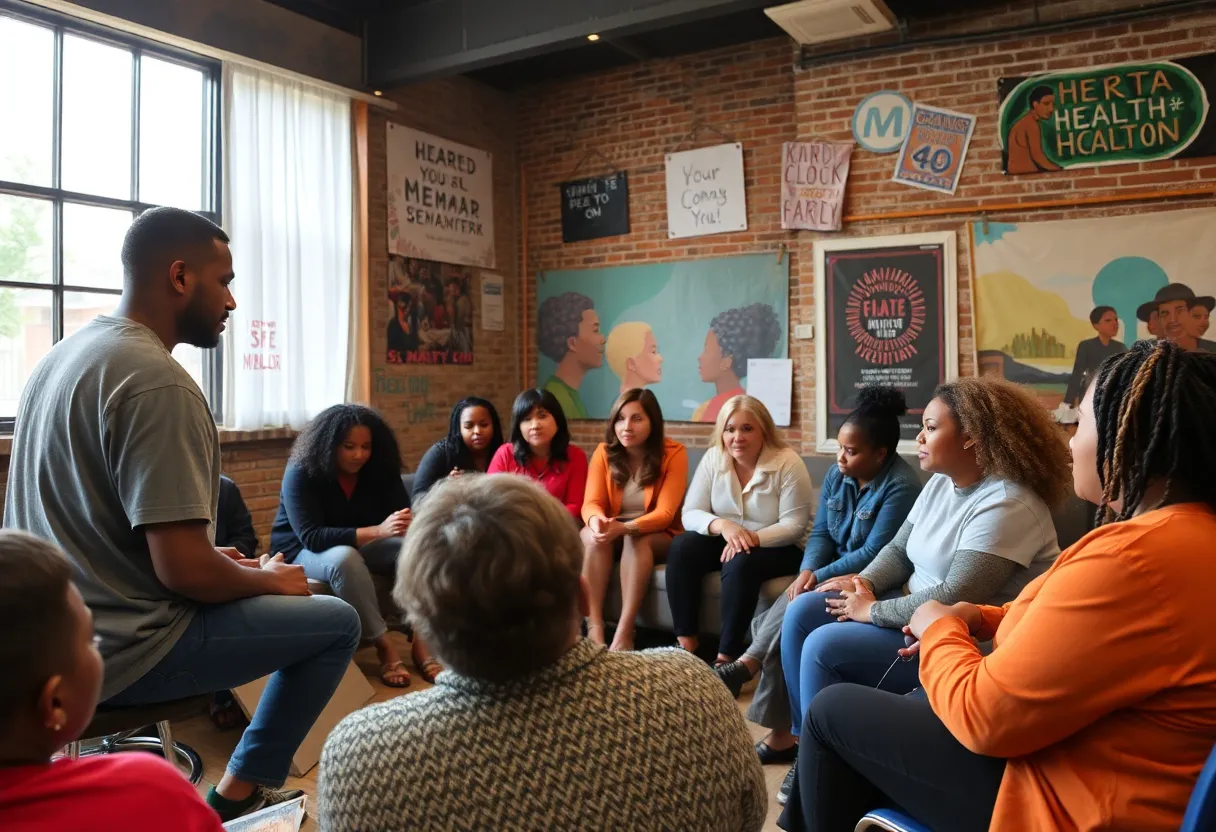North Omaha, October 15, 2025
A study reveals that nearly 40% of residents in North Omaha are exhibiting symptoms of post-traumatic stress disorder (PTSD) linked to ongoing violence and trauma in the community. The research, conducted by local health organizations, underscores the critical mental health crisis and calls for increased support services. City officials are responding with pledges to enhance funding for mental health counseling programs, aiming to address the mental health needs of the affected population and promote community healing.
Omaha, Nebraska – A recent study has uncovered deeply troubling rates of post-traumatic stress disorder (PTSD) in North Omaha, with close to 40% of residents showing symptoms tied to persistent community violence and trauma. Released on October 15, 2025, the research paints a stark picture of the mental health crisis affecting the area, calling for urgent expansions in local support services.
The study, carried out by community health groups in the region, surveyed residents who described living under a constant shadow of fear due to recurring violent incidents. These accounts reveal how everyday life in North Omaha has been marked by chronic anxiety and emotional strain, stemming from exposure to crime and loss. The high PTSD prevalence underscores the long-term impact of such conditions, where individuals face sleep disturbances, heightened alertness, and emotional numbness as common responses to their surroundings.
Key Findings and Community Impact
At the heart of the report are personal narratives from participants, highlighting the psychological toll of ongoing violence. Many reported feeling trapped in cycles of worry, unable to escape the immediate threats in their neighborhoods. This trauma not only affects individuals but ripples through families and the broader community, hindering social connections and daily functioning. The 40% figure stands out as particularly alarming, suggesting that a significant portion of North Omaha’s population is grappling with these invisible wounds.
Health experts involved in the study emphasize that PTSD symptoms in this context are directly linked to the area’s history of frequent crimes, including shootings and other assaults that have plagued the community. The research methodology included detailed interviews and assessments to ensure accurate measurement of symptoms, providing a reliable snapshot of the issue’s scale.
City Response and Pledges for Support
In direct response to these revelations, Omaha city officials have committed to boosting funding for mental health counseling programs tailored to North Omaha residents. This initiative aims to address the gaps in accessible care, offering therapy sessions, support groups, and outreach efforts focused on healing from trauma. The emphasis is on building resilience through community-based interventions that prioritize long-term recovery over short-term fixes.
These pledges come at a critical time, following a series of recent crimes that have heightened tensions in the area. Officials view the expanded services as a foundational step toward breaking the cycle of violence and its mental health consequences, with plans to integrate these programs into existing public health frameworks.
Background on North Omaha’s Challenges
North Omaha has long faced socioeconomic pressures that exacerbate violence, including limited access to resources and historical inequities. The study’s release aligns with broader discussions on urban trauma, where environmental factors like poverty and crime intersect to create breeding grounds for mental health issues. Past efforts to tackle these problems have included community policing and youth programs, but the new data indicates a need for more targeted mental health interventions.
By shining a light on PTSD rates, the report serves as a call to action for stakeholders, from local government to nonprofits, to collaborate on sustainable solutions. Early implementation of the pledged funding could see counseling centers established within months, providing immediate relief to those affected. As the community navigates these challenges, the focus remains on fostering environments where residents can reclaim a sense of safety and normalcy.
The study’s findings also prompt wider reflections on how cities across the U.S. handle trauma in underserved areas. In Omaha, this moment represents an opportunity to transform awareness into tangible change, ensuring that mental health support keeps pace with the demands of community healing. With nearly 40% of residents impacted, the stakes are high, and proactive measures will be essential to mitigate the ongoing effects of violence.
Overall, this development highlights the interconnectedness of public safety and well-being, urging a holistic approach to North Omaha’s recovery. As programs roll out, monitoring their effectiveness will be key to refining strategies and supporting those in need.
FAQ
What does the study reveal about PTSD in North Omaha?
A new study on violence in North Omaha reveals alarmingly high PTSD rates among residents, with nearly 40% reporting symptoms linked to ongoing community trauma.
Who conducted the research?
Conducted by local health organizations, the report highlights the need for expanded mental health services.
What experiences did participants share?
Participants shared stories of living with chronic fear due to frequent incidents.
How is the city responding?
City officials pledged funding for counseling programs, emphasizing community healing efforts in the wake of recent crimes.
Key Statistics Chart
| Feature | Details |
|---|---|
| PTSD Rate | Nearly 40% of residents reporting symptoms |
| Linked Cause | Ongoing community trauma from violence |
| Study Conductors | Local health organizations |
| Resident Experiences | Chronic fear due to frequent incidents |
| City Response | Pledged funding for counseling programs |
| Focus Area | Community healing in North Omaha |


